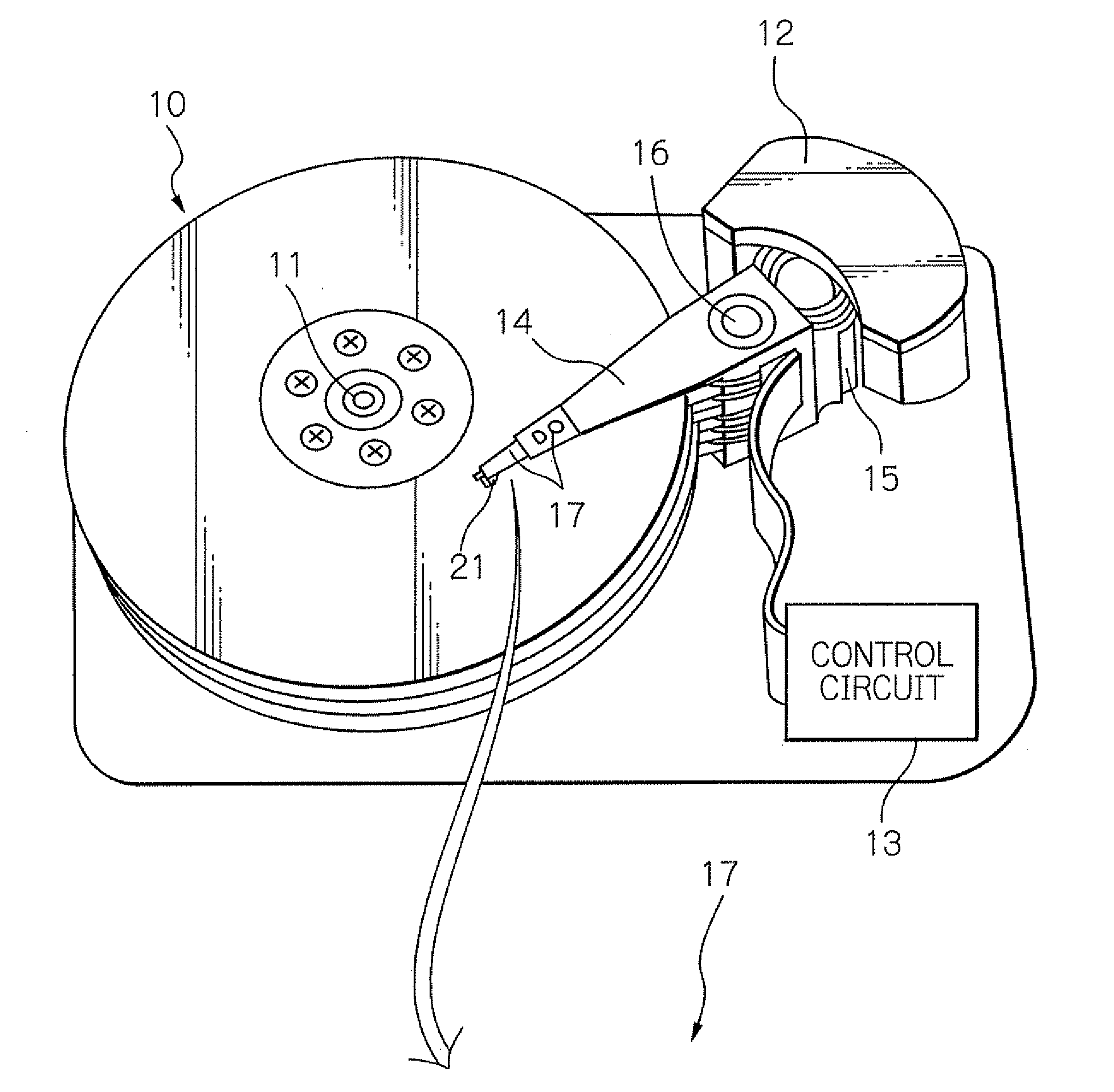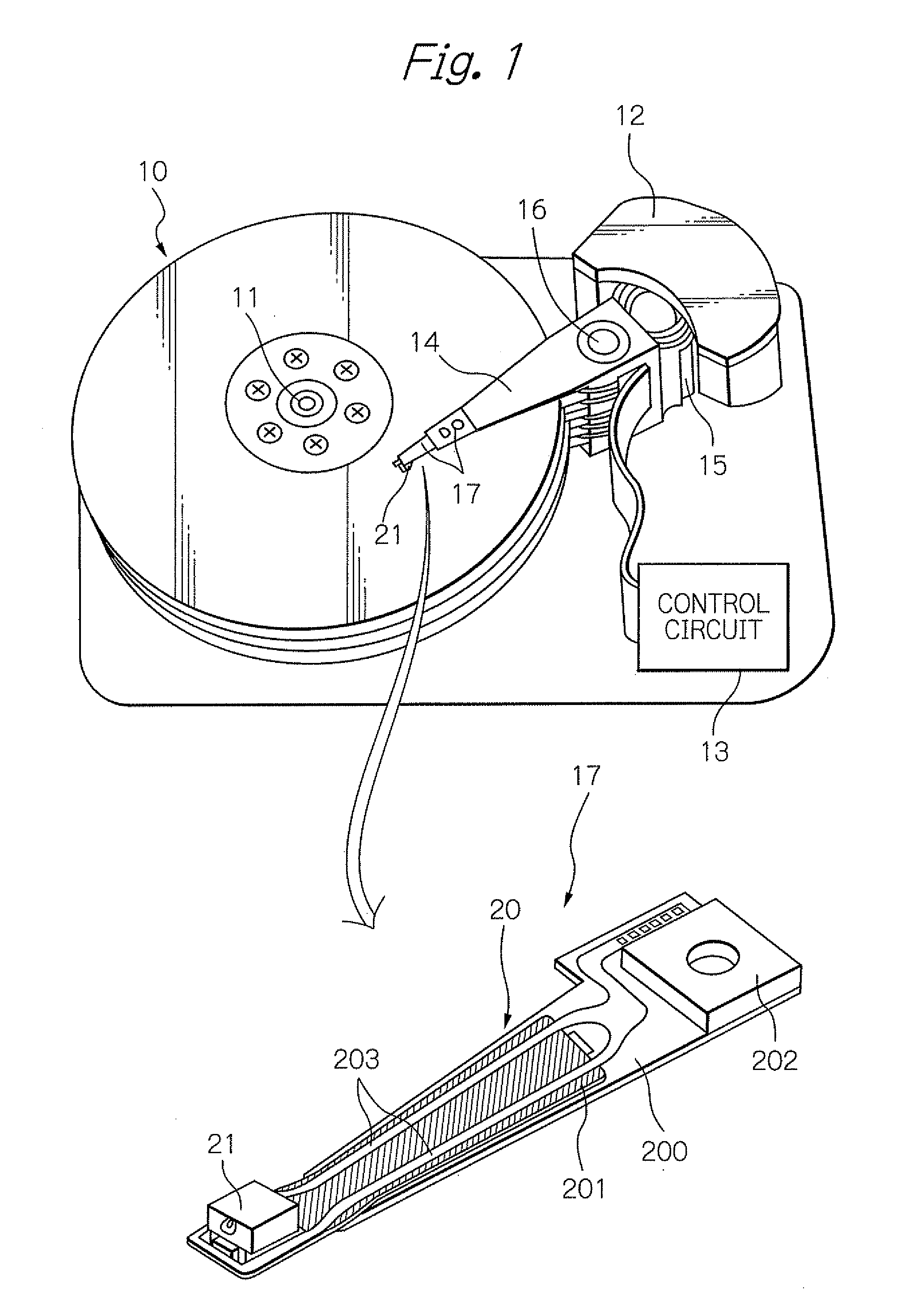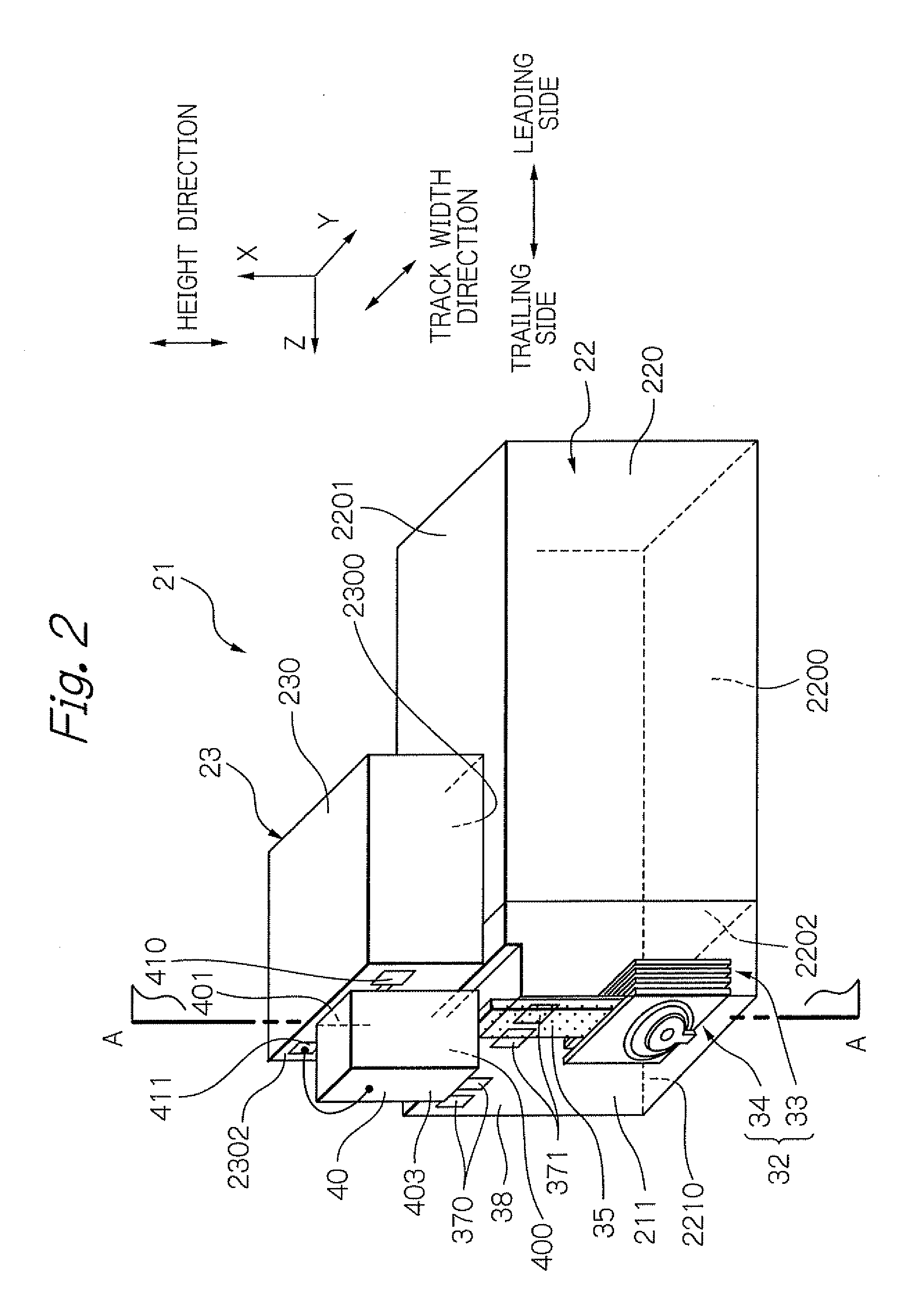Heat-assisted thin-film magnetic head and heat-assisted magnetic recording method
- Summary
- Abstract
- Description
- Claims
- Application Information
AI Technical Summary
Benefits of technology
Problems solved by technology
Method used
Image
Examples
example
[0099]As the example, the magnetization state of recording bits pattern was simulated, in case of the heat-assisted magnetic recording of 2100 kFCI (Flux Change per Inch) line recording density. Further, the signal to noise ratio SNR of an output from the MR element 33 is calculated when the MR element 33 reads the recording bits pattern.
[0100]For the simulation of the magnetization state, LLG simulation according to Landau-Lifshitz-Gilber equation was used. For the condition of the simulation, the power of the laser source for heat-assisted was 8 mV. The wavelength of the laser light was 650 nm. The spot diameter of the laser light from the waveguide 35 was 800 nm. Moving line velocity of the rotation of the disk 10 was 1.5 m / s. The magnetic spacing, which is a distance between the recording layer surface and end surface of both the MR element 33 and the electromagnetic transducer 34, was 6 nm. Further, the thickness TP of the fore end part of the main magnetic pole 3400 was 0.3 μm...
PUM
 Login to View More
Login to View More Abstract
Description
Claims
Application Information
 Login to View More
Login to View More - R&D
- Intellectual Property
- Life Sciences
- Materials
- Tech Scout
- Unparalleled Data Quality
- Higher Quality Content
- 60% Fewer Hallucinations
Browse by: Latest US Patents, China's latest patents, Technical Efficacy Thesaurus, Application Domain, Technology Topic, Popular Technical Reports.
© 2025 PatSnap. All rights reserved.Legal|Privacy policy|Modern Slavery Act Transparency Statement|Sitemap|About US| Contact US: help@patsnap.com



